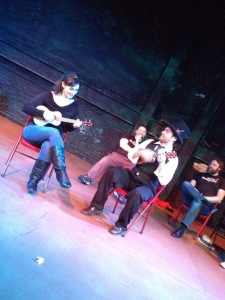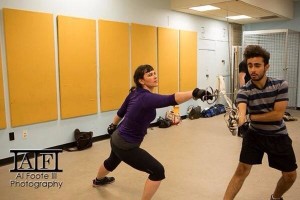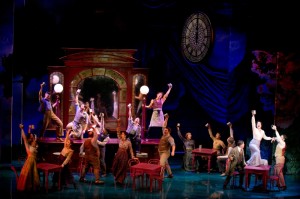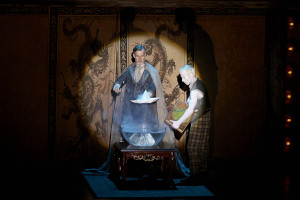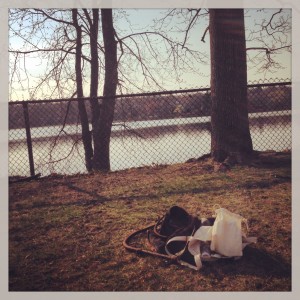I used to be afraid of Opera.
I know that sounds weird. I mean, it’s not like I had nightmares about a heavy-set woman wearing a helmet with Viking horns and yellow braids chasing me down while singing “Flight of the Valkyries” in a piercing soprano (…though now that I put it that way, it does sound kind of horrifying). When I entered my PhD, despite having been a theatre person my entire life, I had never seen an Opera.
It just seemed daunting. There was so much popular entertainment baggage associated with it. So much society told me I should be if I went to an Opera: well bred, musically inclined, interested in melodrama, in possession of a fur coat and those tiny steam-punk binoculars… What happened if I found it boring? Or worse, what happened if I laughed at the ridiculousness of some big tragic moment put to song in a way that seemed in keeping with the genre tropes that my admittedly narrow-framed world view understood to be a part of the Operatic aesthetic?
Cut to one day in my first-year research methodologies course, the Professor going on some tangent about various “alternative” theatrical forms. He wound up in an Opera rut and paused when he realized that he was looking at a roomful of blank-blinking faces. “Who here has been to the Opera?” He asked.
Not a single one of us raised our hands.
He freaked out a little bit (not in a scary way, but definitely in a way which made an impression). I mean, he was kind of right. A roomful of various theatre professionals now entering their second-ish career in training to become theatrical experts and not a one of us had attended live Opera. There was something shameful about that; he knew it, and I think in our hearts we knew it. I vowed in that moment that I would make it my business to see an Opera as soon as I could.
I didn’t have to wait long. A couple months later, I was presented with tickets to La Traviata as an afternoon outing with a friend. We went. I swallowed my anxiety about what to wear, how much to read the subtitles and how much to look at the actors, and if I would have a good time, and let the music wash over me.
It was a great evening. AND I got to feel morally superior to boot since it was the same day as the Superbowl that year (…I mean really, I took in a great cultural moment and supported the arts while the rest of America grunted at their television sets…). Two years later, I review Opera on a regular basis and I’m working hard to introduce the art form into the lives of those around me.
It can be tough to work up the nerve to have a new experience. But especially when that new experience involves supporting the arts, it’s important to buck up and give it a try. Here in Boston we have all kinds of opportunities to see Opera: Boston Lyric Opera, Boston Opera Collaborative, Boston Metro Opera, and Geurilla Opera (to name a few professional companies). There’s also more “home-grown” student organizations such as the MIT Gilbert and Sullivan Players, performances by New England Conservatory’s Opera Students, and performances by Opera students at the Boston Conservatory. Take a risk, take a chance; you might just (like me) discover something new and wonderful out there in the world.

